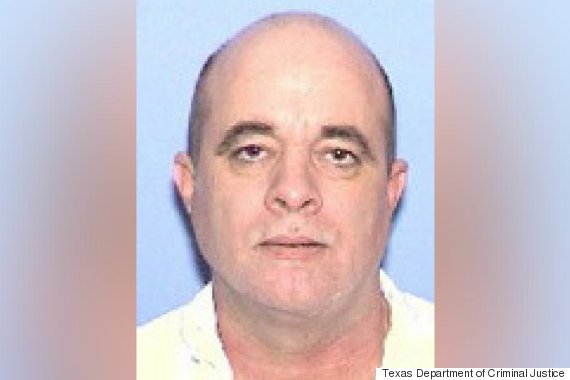
“Barney Fuller found happiness with a warm gun.”
That’s how a Texas prosecutor, Tanya S. Dohoney once described him.
His pastime was shooting his guns as often as he could on his rural Houston County property in Lovelady, Texas, a town of about 600.
It drove his neighbors crazy, especially when he shot an electric transformer belonging to the Copeland family “to smithereens,” as Dohoney put it. When the family complained, he told Annette Copeland over the phone: “Happy New Year. I’m going to kill you.”
They, in turn, brought terroristic threat charges against him. And he, in turn, grew furious, went on a drinking binge and walked the some 200 yards to the Copeland’s home. Annette, 39, her husband Nathan, 43, and their two children were home at the time.
A court ruling in his case described best what happened next in May, 2003:
“The appellant fired approximately sixty rounds from an AR-15 rifle into the Copeland home from outside, changing the magazine on his rifle three times. He then broke down the back door and made his way to the master bedroom where he fired several more shots with a pistol, reloading twice. He shot Nathan four times. The first shot was a fatal head wound from a rifle. The other three wounds, which were also classified as fatal, were from a pistol that was fired at Nathan’s back from a distance of only one to three feet.
“Annette managed to call 9-1-1 from the master bath.
“The operator heard a man say, ‘Party’s over . . . [bi – h]’ before hearing ‘a popping sound’ and the line went dead.
“Annette was shot three times in the head with a pistol, once directly through her brain and twice through her facial bones.”
Their son Cody, 14, survived along with a daughter, but only because Fuller could not find a light switch to show him the way to their rooms and hunt them down.
A SWAT team showed up to get Fuller. But he surrendered peacefully.
And when he did, he surrendered forever.
He pleaded guilty and was a no-show at his own sentencing trial.
His lawyers, as lawyers must do in capital cases, filed the requisite appeals. But as one of them said, they “didn’t have a whole lot to work with.”
Fuller, the AP reported, stopped paying attention to his own case, telling his lawyers “[I] really do not care and do not want to go on living in this hellhole. Do not do anything for me which will prolong my appeals and time here on Texas death row.”
“What’s the point of sentencing someone to death, you know, if you’re not going to carry on through with what you ordered,” Fuller said during a court hearing.
Wednesday night, asked if he had anything to say, he said, “no.” His last utterance to Huntsville warden James L. Jones was, “You can proceed Warden Jones,”
Officials at Huntsville prison in Texas pronounced Fuller, 58, dead at 7:01 p.m. local time after a lethal injection.
A reporter for the East Texas News who witnessed the execution said no one on Fuller’s family side showed up to see him die.
Cindy Garner, the former Houston County district attorney who prosecuted Fuller, described him as mean and without remorse, the AP said.
“It’s not a cheerful situation,” she said of the execution. “I just regret that this little, plain, country, nice, sweet family — bless their heart — moved in next door.”
A sister of the Colemans who witnessed the execution had only one thing to say:
“The party is over now . . .”
(c) 2016, The Washington Post · Fred Barbash

